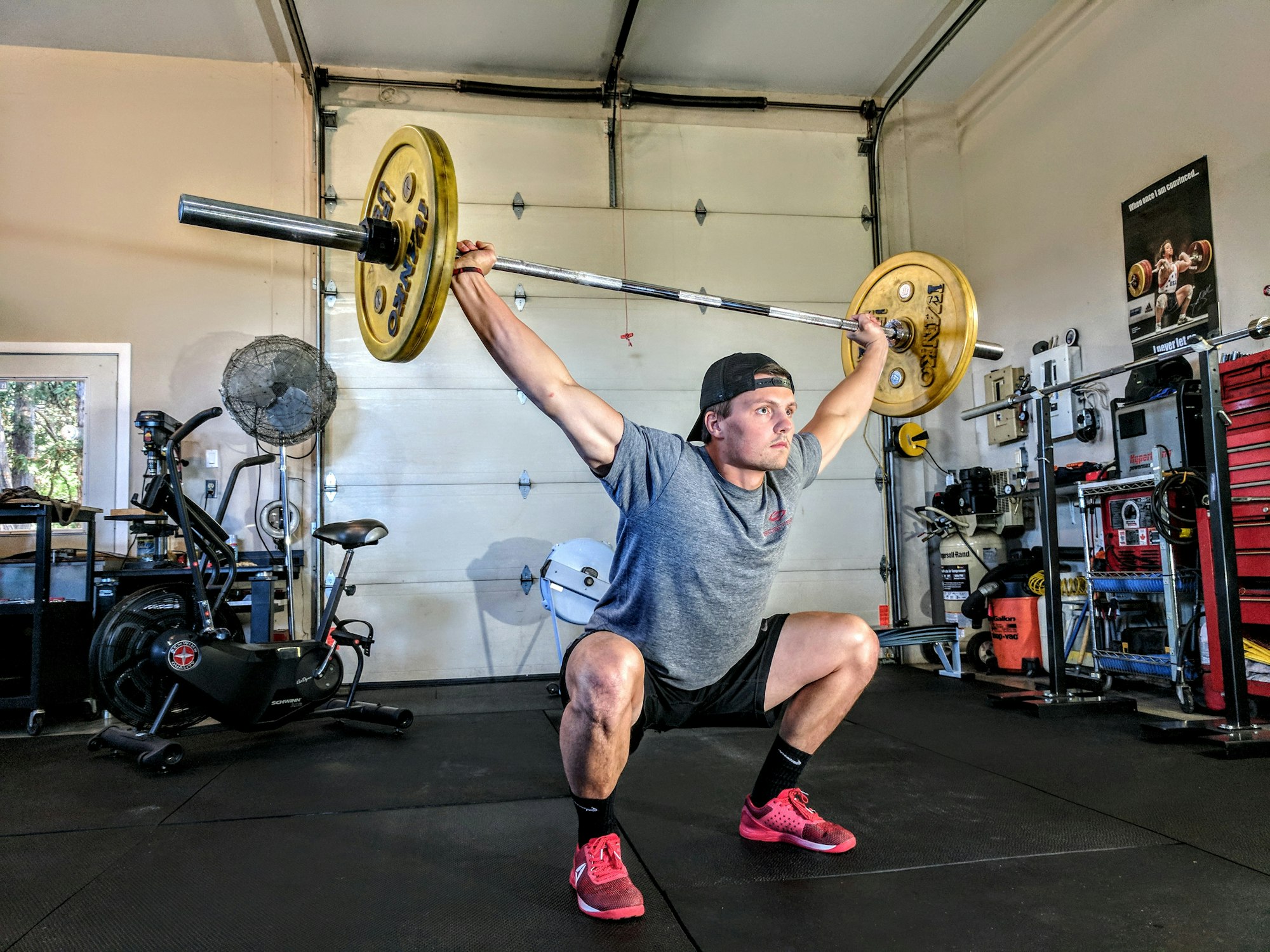progressive overload
Want to lift more weights than anyone else you know? Well, read on!
One of the fundamental principles in strength training is progressive overload. It simply means you try to do a bit more work than last time. Either you lift more weight, or you lift a weight for more repetitions - do more work in some fashion.
Our body works the same way. Have you heard the story of Milo of Croton, a 6-time Olympic wrestling champion? Legend has it that he lifted a young bull every day as part of his training. As the young calf grew heavier day by day, he was progressively overloading his body into getting stronger.
Let's say you can lift 10 kilos. When you try to lift 11 kilos and succeed, your body has pushed past its previous capability. It realises you are trying to do some things to it and so has to adapt. Which it does by improving neuromuscular adaptation (your brain tells the muscles to switch on better, and tells more muscles to switch on better to do the job required) and increased muscle growth. And you keep doing it, well, you get stronger.
the right amount
This is not just a fundamental principle in strength training but in the larger scheme of learning. It is only in the right zone, just outside of our comfort zone but still within our capabilities that we truly grow. Too hard, and we will give up. Too easy, and we don't learn. Just right - in the Goldilocks zone - and we stretch and grow.
Without progressive overload, you are not really training. The right amount of overload is key. This is why random workouts hurt, rather than help. This is also why maximum intensity all the time leads to injuries or reduced results over time.
world champion in 3 years
Finding the right dose, as always, is important. By pushing just a bit beyond your capability, you are guaranteed to progress. Not just in strength training, but most physical activities work on this principle.

So, you can squat 10 kilos today. Let's say you add 1 kilo a day. Let's not be greedy - let's say we can do this for 5 days a week and we chill two days. Quick computation of our squat
- In one year, you will be squatting 270 kilos.
- In two years, you will have the world record in your sights.
- In three years... stop. Bad news.
The progress is neither linear not infinite. It stops. That's just how it is. But the cool thing is, that's great for regular people like you and me. We should just aim at getting a lot stronger than where we are today, and not random silly numbers that actually do not matter to us.
using this principle to do pushups
While it is key to identify the edge of our comfort zone, and the weight room offers us clear definitions and numbers of where that stands, getting stronger is not an infinite game. Once you get StrongEnough, you really do not need to get stronger than that.
How can you use this principle? Well, let's say you want to do pushups. You currently have a 1-minute plank. Let's break it down.
- you start by identifying a version of the pushup you can do. Let's say you can do pushups by standing against a wall. For clarity's sake, let's call the angle between the horizontal and your body 45 degrees and the current number of pushups you can do as 5.
- you can increase the number of pushups you do in each training session. Instead of trying to do 6, you might want to do 3 sets of 3. A set of 3 is only 60% as hard and you will be able to do that with good technique.
- Next week, you can do 4 sets of 3. Let's go up to 10 sets of 3 over a few weeks.
- Now, you will be able to do a pushup at a lower angle. You repeat this process - finding the right level of increased difficulty.
- And voila, you have a pushup from the floor!
This is a bit simplistic but that's essentially all there is.
it slows down
When you are just starting off, you can literally add 5 kilos to the bar every time you squat. But after 6 months, progress starts to slow down. You start doing slightly more advanced techniques - like a simple linear cycle. And as your training age increases and you get closer and closer to your potential, eking out progress via more weights slows down.

But that's okay. There's really nothing to be gained by trying to lift arbitrary amounts of weight. Once you are StrongEnough, you will have a great foundation to do other activities on top of it. You can improve your skills, you can learn new skills, you can play other sports, learn new things, mix and match a bunch of these.
The principle of progressive overloading is a powerful one. It involves you having the courage to push past your comfort zone and also leaving your ego aside to push past it the right amount. The rest will take care of itself.
And remember, the game is not to keep trying to lift more weight than last week. That's a fun game to play for a few years. Once you get there, it is fine to change the game.
